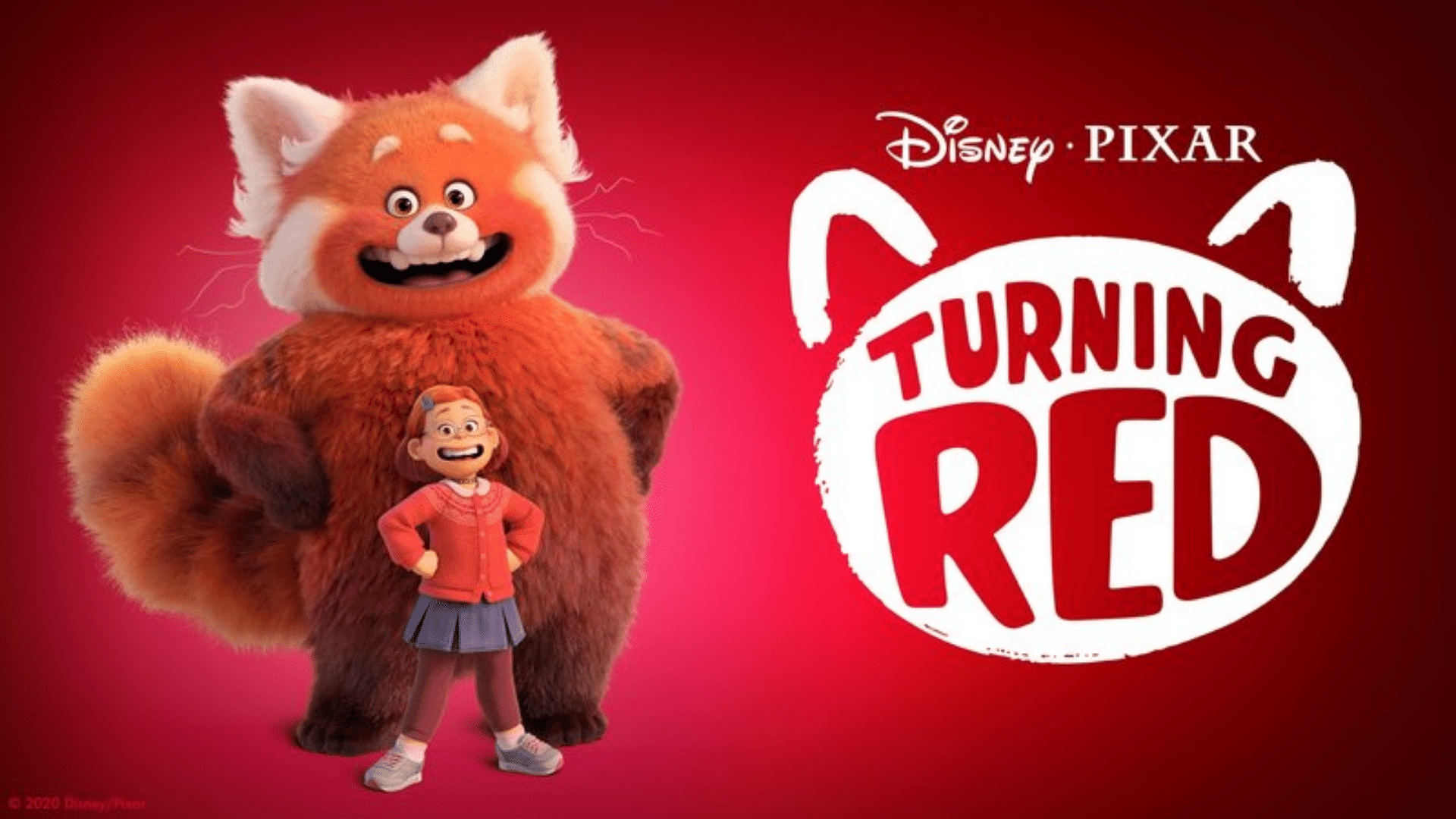The home of the popular fairytale films and the never-fading phrase “Hakuna Matata” that we got from the well-known film “Lion King”, Disney movies have always been iconic and have stamped our hearts with tugging stories and amazing plotlines. This year 2022 will be spectacular for both Disney and Disney fans as there will be new Disney movies to be released, from live-action versions of the classics, to new 2022 Disney animated films, to new releases on Disney Plus. Let’s just say, there is a lot to look forward to.
What is “Turning Red”?
Disney Pixar’s newest movie “Turning Red” was released just this March 2022, and it has been gaining attention since due to its beautiful animation, creative elements, incredible sense of humor, and especially, its overall story with themes of family and multiple moral lessons and realizations after watching the whole film.
The story centers around Meilin Lee (also known as Mei), a 13-year-old Canadian Chinese kid in 8th grade who is caught between puberty and impressing her parents. And, as a result of a family curse (or gift), when she reaches puberty, she transforms into a cute, red, huge, furry panda.
At first glance, Disney's premiere 2022 film appears to be a goofy comedy featuring a gigantic red panda, but the picture contains deep layers of meaning underneath the storyline twists and characters. The film teaches children about dealing with strong emotions, defining their identity, and communicating openly. However, there is a lot in this picture for grownups as well.
You may start to question: it’s just a kid’s movie, how is it so relevant and knowledgeable that even adults would enjoy it?
Well, let me give you a list of the top lessons from the “Turning Red” movie that you may or may not have grasped after watching.
(Warning: This may contain spoilers for “Turning Red”!)
Adulting comes with Responsibilities
At the beginning of the “Turning Red” movie, Mei introduces herself in the narration as an adult, and that she does whatever she wants to do because that’s how adulting is—sorry to break her expectations, but that’s not just how it works.
After Mei’s proud introduction, the next scenes show that even if she calls herself “her own person”, she is an adult—or a teen—who has responsibilities such as being a good student and achiever, as well as a well-obedient daughter who helps her parents at the temple after school.
As much as we can have more sense of freedom as we grow up, adulting comes with responsibilities, and some of them are heavy and difficult.
It’s Okay to Feel Things (No Matter How Big or Small They Are)
Big emotions are proof that you are human.
Mei first transforms into a panda after getting a crush on Devon, who is a store clerk at the Daisy Mart, and she soon finds that any strong emotion can alter her. Mei's blessing (and curse) is a supernatural gift from her ancestor Sun Yi, a warrior woman who summoned the spirit of the red panda to protect her family and village. Mei, who was unexpectedly given this "gift," discovers that anytime her emotions run out of control (which is common for this hyperactive and hormonal teen), she transforms into the red panda. The panda is triggered by intense anger, joy, humiliation, excitement, and fear. While these are all related to puberty (including a reference to Mei getting her period), the fact is that we all experience intense emotions. So, when we—or our children—experience them, that is all valid, and we are not broken just because we feel that way.
Self-Soothing is Highly Essential, No Matter Who or What You Are
When Mei transforms into a panda, she panics and causes havoc, causing damage to everything around her. Mei transforms into a panda as a result of an ancient family boon turned inconvenient. She is initially terrified, but soon discovers that the only way to tame the panda is to remain calm. She regains her humanity when she comes to a halt and practices deep breathing. Mei also uses self-soothing tactics when she brushes her panda cheeks (sensory stimulation), sings with her buddies, and is held by them. Mei gradually learns to tame the panda by utilizing these strategies.
This shows that by developing our self-soothing tactics, we can learn to hold and then harness our emotions in the same way. This is also a terrific tool for kids who are suffering meltdowns, as well as a good excuse to employ sensory toys, sand play, card games, relaxing music, or a meditation app. We all have different coping mechanisms that are effective to clear our minds and collect ourselves, so do what you think helps you out the most.
Emotions are To Be Processed, Not Suppressed
The red panda represents the changes that occur during puberty and emphasizes the significance of recognizing and accepting these changes. When Mei becomes emotional and is unable to control her emotions, the panda appears. To everyone's surprise, Mei eventually learns to control her emotions and her red panda. This shows that even if we say that big feelings are normal and should be freely let out, we should also learn how to control them when needed.
The climax of the Disney animated film, when Mei's mother brings out her panda for the first time in decades and is completely overcome by her rage, disappointment, and anguish, demonstrates how harmful concealing our feelings can be. Like releasing all of the pressure locked inside a pressure cooker before fully opening it, we must learn to let out our emotions gradually rather than waiting for them to explode and cause harm to ourselves and those around us.
The Importance of Strong Friendships and Understanding
Mei's friends Priya, Miriam, and Abby are always there for her when she has temper tantrums or feels intense emotions. They are there when Mei is feeling pressured and embarrassed because of her mother’s actions, and they are the ones who she can freely show who her real self is, without restrictions. Among all the key people in Mei's life, her friends are without a doubt the most important. The film depicts an extremely moving sequence in which the three friends jump and cradle the red panda while Mei cries, causing Mei to revert to human form. They are the ones who remind her of who she truly is and how much she is worth. She is frequently repulsed by herself in her red panda shape and believes that no one will like her. This is obviously not the case, but that's how she feels, and that's fine.
Friendship or any kind of relationship is a crucial element of our development as we grow older. Friendship is also an important element of Mei's life. She may be herself in their presence and talk about boys. Her friends adore her for who she is, and they tell her that "panda or no panda," she will always be their girl. Friends like this are valuable because you know they will always have your back. They're the ones who will love you, all of you, flaws and all.
More than just ourselves, we should also surround ourselves with people (may it be our friends, family, special someone, or whoever) that can stand as our safe haven from all the chaos of the world. How nice it is to feel the love that Mei’s friends describe as a warm, fuzzy blanket?
Compromising and Acceptance is Hard, But Needed
More than just “Turning Red” is an incredible film that teaches us lessons about growing up, adulting, and handling emotions, it also gives lessons to parents—such as us learning to accept that change is inevitable and that what want for our child isn’t always what they want for themselves, moreover, what’s better for them.
Raising children is difficult, and the shift from child to adolescent is complicated. The necessity to protect children while still allowing them to thrive is seldom precisely defined. When we try to manage our children, the consequence of doing it too much is our children feeling suffocated. That is why compromise is essential. Mei's mother was first unwilling to make a compromise with her daughter. Her mother determined her routine, appetite, cleanliness, and interests. And as soon as she sought to establish a name for herself (like listening to the boy band 4*TOWN), her mother panicked and tried to restrain her from her interests. This prompted Mei to transform into a red panda again to escape and attend a concert.
We must sometimes say no or meet them halfway. Sometimes we are so afraid of what is new and different that we reject it before giving it a chance. Set firm boundaries for your children while also allowing them to express themselves and ask questions. Why do they like this thing? Will doing this let them express themselves better? Do they feel restrained because of it?
As much as our children respect our decisions, we should also respect theirs. Be the pillar for your children to grow stronger, not the wrecking ball that breaks them down.
“Turning Red” Also Turns Lives Better
This 2022 Disney movie depicts the intricacies of relationships, representations, and acceptance, and this article digs into these aspects of hidden meanings in this coming-of-age movie.
Rather than denying our emotions, we might choose to digest them like Mei. While this is challenging and time-consuming self-work, it allows us to truly live in the moment. Learning to embrace and control her emotions (or even dwell within them) allows Mei to reclaim her agency, identity, and power. Her ability to articulate her deepest emotions is, in essence, her superpower. It isn't always easy, but it leads to a better love of oneself.
Who knows that even watching movies in our condo living would also give us such life valuable lessons? There is learning in everything, indeed.
There are more new Disney movies to anticipate this 2022 that will surely bring us to amazement—and character development. There will be wide ranges in the genre, visuals, and other aspects so there will be something for everyone, and let’s safely assume that we can look forward to it.
If you are thinking of living in a condominium, check out Vista Residences!
For more information on Vista Residences, email [email protected], follow @VistaResidencesOfficial on Facebook, Twitter, Instagram, and YouTube, or call the Marketing Office at 0999 886 4262 / 0917 582 5167.









